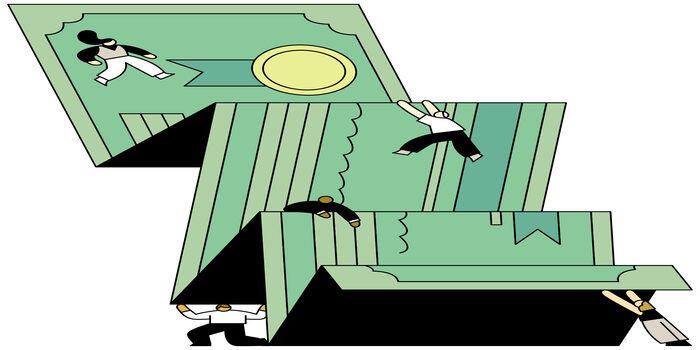If you're looking to purchase a large purchase such as an automobile, you might be required to get an installment loan to pay for the expense. Car and personal loans are among the most commonly used choices for financing. As long as you meet their specific conditions for borrowing, they can be pretty easy to obtain.
What is the main difference between these two? Personal loans can be utilized for various reasons, such as buying automobiles, whereas the car loan (as the name suggests) is solely for purchasing an automobile. Each type of loan has its pros and cons, and it's crucial to evaluate and contrast them before signing on the dotted line.
Personal Loan
A personal loan is a way to provide the borrower with money from an institution of lending (generally one that is a banking institution) and in one lump sum, which the borrower may utilize at their discretion to pay for, for example, an event like a wedding, vacation, or even home improvement.
A personal loan may be secured against a valuable item such as a car or home, allowing the lender to take possession of the asset to cover the losses in case you fail to pay the loan back. Most people, however, choose to take out an unsecured loan; that is, the loan is granted without collateral. Two main elements that influence the total amount of money you pay on a loan include the interest rate and the length of the loan. Personal loan calculators could be a helpful tool for understanding how these variables can affect the amount you pay every month.
Interest Rates
In general, unsecured loans carry higher rates of interest than secured loans with collateral. Personal loans without collateral come with more strict approval criteria, which means you'll need good credit standing by your side. If your credit score isn't in good condition, personal loans may not be a viable alternative.
Your credit score can affect the amount of your loan as well as the rate of interest, which could be variable or fixed. The higher your credit rating, the greater your credit capacity, and the lower the interest rate. The lower your credit score is, the less your borrowing capability and the higher your rate.
The Terms
Personal loans come with a fixed term for repayment. It is specified in 12 months, 24, 36, 36, etc. The longer loan terms can lower the amount you pay each month, but you'll pay more interest over the loan. On the other hand, shorter loan terms will result in higher monthly payments; however, they pay less interest overall as you pay off the principal quicker.

Car Loan
The car loan you take out is secured by the car you plan to purchase, meaning the car acts as collateral to secure the loan. If you fail to make your payments, the lender may take possession of the vehicle. The loan is repaid in fixed installments over the term of the loan. Like a mortgage, the lender is the asset owner until you pay your final repayment. To determine which interest rate and the term is most suitable for your requirements before visiting the dealer, try playing with the auto loan calculator before making your final decision.
Interest Rates
Because the lender controls the financials over the car -- it's a secured loan--the loan is thought to be less risky and, in turn, results in lower interest rates for the lender. Interest rates can also be fixed, meaning that the borrower is not subject to the escalating rates that could be seen with personal loans.

The Terms
Most automobile loans are repaid at 36 or 48, 60, and 72 months. Like a personal loan, the shorter the loan term, the more expensive the monthly payment, and the reverse is true. A less-than-average credit score isn't going to be a barrier between you from obtaining a car loan (unlike personal loans). This will also have a lesser influence on the interest rate, or the cost of the vehicle determines the amount you borrow. There are many ways to apply for auto loans. Before you sign up for a dealer loan, you should consider whether you can get a loan from a local credit union or bank that will offer the best deal.
watch next


